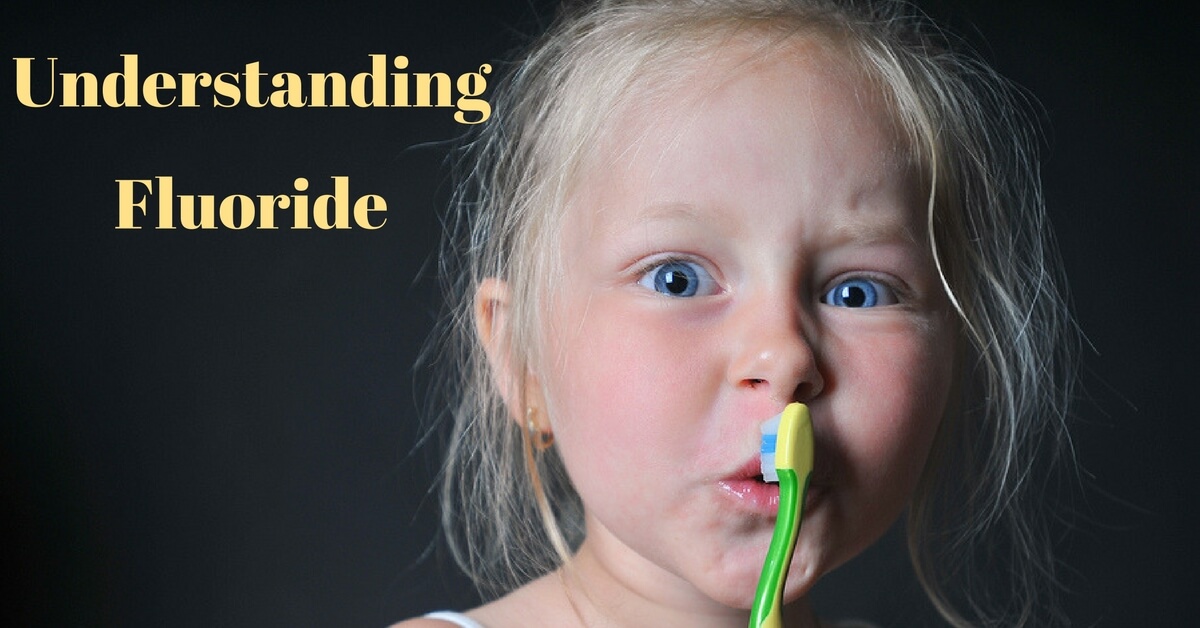Fluoride is a substance that has unique health benefits in low doses but unfortunate side effects in high amounts, making its use both common and controversial. In dentistry, it has been shown that low amounts of fluoride to strengthen forming teeth and help prevent tooth decay. However, fluoride does become toxic when consumed at high doses, therefore overall exposure to fluoride should be limited.
What is Fluoride?
Fluoride is a mineral that is found naturally in groundwater and food and is commonly found where there are large granite deposits or volcanic rocks. In humans, fluoride works alongside calcium and phosphate, to re-mineralize the enamel of our teeth, repairing the damage of acids, sugars and bacteria that strip the tooth’s enamel layer of its mineralized protection.
Fluoride Builds and Protects Strong Teeth
When fluoride is introduced to children’s teeth, it helps to naturally strengthen and protect them from decay. Fluoride reinforces children’s teeth, especially when used between the ages of 6 months and 16 years. Fluoride has special benefits when used by children under the age of six, incorporating itself into the development of children’s permanent teeth and protecting the teeth from acid-based decay. All told, fluoride reduces the risk of tooth decay by 25%.
Fluoride’s dental benefits extend to the health of a growing skeletal system. The presence of low levels of fluoride in tap water has been linked to a lower rate of broken bones and better bone strength and health. In moderation, fluoride has great benefits to health and skeletal resiliency.
Fluoride is Only Harmful in Large Doses
Fluoride is a component in toothpaste and mouthwash and is used in protective gels and supplements because it is a proven asset to dental care and oral health. It is also a monitored additive to much American tap water, used in small amounts as a public health service.
Fluoride can be very harmful though when taken in the wrong amount and this fact is at the core of controversies surrounding its use. Fluoride in safe amounts is equivalent to around .7 milligrams per liter of water. At levels above 1 milligram per liter, dental fluorosis becomes more likely. Dental fluorosis is a mild discoloration of the teeth.
With higher levels, from 1 milligram to 4 milligrams per liter, the consequences of fluoride intake become more serious. While acceptable levels of fluoride help to strengthen teeth, and have been shown to correlate with a decrease in broken bones, fluoride at elevated amounts causes a chronic condition – skeletal fluorosis. Skeletal fluorosis is marked by bone weakness and can be accompanied by joint pain and irritable bowel syndrome.
Excessive amounts of fluoride leeched into groundwater is a common problem in a large portion of the world’s well water. Drinking such water can lead to chronic fluoride toxicity, bone deformities, kidney damage and thyroid problems. Large parts of India and China as well as much of the western United States have groundwater containing over twice as much fluoride as the recommended 0.7 mg/l threshold. In Asia, the reliance on well water has made fluorosis endemic. In the U.S., with more public water infrastructure in place, the prevalence of fluorosis is much lower.
How to Use Fluoride Safely to Help Your Child’s Growing Teeth
It is safe to use topical fluoridated products at home and as part of daily dental care, in fact fluoride in the right amount is a smart part of a healthy balance. To avoid any risk of toxic fluoride levels, always use products according to their guidelines. Fluoridated products are meant for topical application on the teeth. Never swallow toothpaste or mouthwash containing fluoride.
If you have children younger than 6, monitor their dental habits closely. Avoid flavored toothpaste that young children are more likely to swallow. Teach children to spit or rinse out their toothpaste when they are done brushing. Young children should be brushing with no more than a “pea-sized” amount of toothpaste, to further avoid any negative effect of fluoride.
If you have concerns about the fluoridation levels of your Portland water, water testing is recommended and widely available. If your drinking water has unacceptable amounts of fluoride, water treatment systems remove 60-95% of the fluoride in the water. Just remember, fluoride occurs naturally and can be used to improve our health when used in the correct amounts. The strength it gives to growing teeth and maintaining dental health makes it a powerful, safe component of modern dentistry.
For more information, contact us at Fox Kids’ Dentistry!

